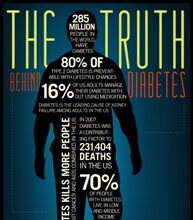The evolution of computer processing power has led to a reduction in size of the most commonly used device used for computing and social media tasks. The tower shrunk to a desktop or all in one format, the desktop was replaced by laptops and tablets. Tablet PCs, notepads, netbooks are morphing into mobile devices of assorted sizes and utilities, merging with video capabilities.
These changes are key to ‘meaningful usability’ in a medical or hospital environment.
Health care and medicine have lagged behind in the use of social media
How the iPhone set the bar for other smartphones in healthcare –
iPhones could be considered the technology that truly kick started the mobile revolution in home care. Small, easy to use and powerful, the iPhone was the first smartphone to really capture the attention of physicians, and to develop tools and resources for healthcare.
Recent data shows nearly 65 percent of hospitals are supporting iPhone use on their networks, and another 83 percent are supporting its larger cousin, the iPad.
Dozens of developers create add-ons, plug-ins, special lenses, and apps that can turn the iPhone into any number of use-specific healthcare tools, including:
- Image-viewers: Recent studieshave shown that the iPhone can be an acceptable viewer for MRI, X-ray and other images, although with the caveat that it shouldn’t be used for primary diagnosis.
- Diagnostic tools: Developers have createdstrips, touchscreen devices and other tools to diagnose everything from malaria to e. coli infection via the iPhone.
- Remote monitors: iPhones can read and transmit data from remote monitoring devices. For example, the iPhone has been employed as a scanner to take glucose readings from strips of nanosensors under skin.
- Microscopes: A cheap, $50 lens turns the iPhone into a field microscope. It’s not the same as powerful lab microscopes, but can enlarge images 350 times, which can be more than enough to see tissue abnormalities and even some diseases.
- Electrocardiograms: A pocket sized device attached to the back side of a smartphone can transmit a remote rhythm strip to a physician or hospital from a 911 first responder.
iPhones also have hefty enough processing capacity to access patient records, Being
Another key component in the iPhone revolution in healthcare clearly is consumers. Saldana estimates that of the 7,000 users who access his hospital’s MyCare patient portal, 80 to 90 percent do so with iPhones. It was one of the main reasons his team moved early on to enable the hospital’s Epic electronic medical record system for iPhones, and later iPads.
And iPhones certainly are upping the ante in terms of patients’ expectations, Feldman adds. “Particularly now that patients have access themselves to their data via portals, so often my patients are as up to date as I am on their labs. It would be embarrassing if they have faster access than I did.”
Physicians will be dragged into social media by their own patients and consumers who will annoyed by not having that functionality with their physician or medical group. Physicians will come to realize the efficiencies of not having to contact the patient about ‘normals’, and the lab data normality can be programmed into the software.
Security Issues:
The one lagging item on the iPhone agenda continues to be security. iPhone users are famous for finding workarounds,
While not HIPAA compliant smartphone experts say they had good luck with “just put[ting] on the lock screen, which encrypts the data on the device and … set[ting] up remote wipe/locate, which are all free features of the phone.” These issues still abound how to encrypt data over the cell and wifi networks. The military does this already with Blackberry devices, which are standard military issue for email and communication in DOD medical facilities.
The capability is there and someone is going to come along and develop this capacity.
And last but not least is social media. Email is slow compared to using Twitter which can actually function much like a pager with a message displaying and a sound alert much like the now obsolete digital pager. It also facilitates a quick reply if desired.
How the iPhone impacted the handset industry
How the iPhone set the bar for other smartphones in healthcare –
And during slow times, there is always:






